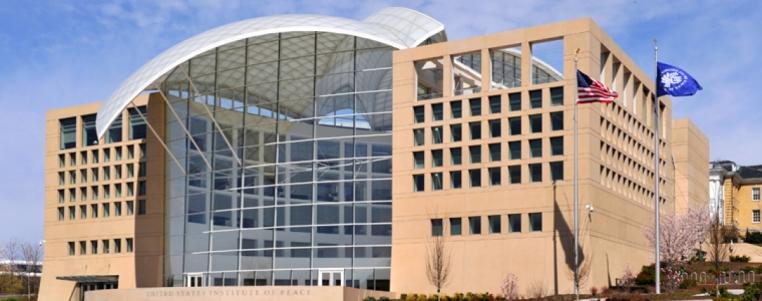Part of an occasional series on state-by-state peacebuilding efforts
Experts on gender and peacebuilding know USIP well from collaboration underway to develop a Gender and Peacebuilding course for peace support operations to strengthen technical, civil, and military institutional capacities to mainstream gender and women’s issue in training for peace support operations.

Off the coast of North Carolina this year an exercise took place with the Navy and Marine Corps. USIP was asked to participate in the Navy and Marine Corps’s biggest amphibious exercise in a decade, Bold Alligator, as part of USIP’s recognized leadership on civilian-military cooperation and training. The exercise showed how the capabilities of the Marine Expeditionary Brigade and the Navy’s Expeditionary Strike Force are integrated. Experts inside and outside the military say that such exercises emphasize the need for strong cooperation between military and civilian agencies in humanitarian and disaster relief operations.
In another part of North Carolina, inland, at the John F. Kennedy Special Warfare Center and School in Fort Bragg, experts on gender and peacebuilding know USIP well from collaboration underway to develop a Gender and Peacebuilding course for peace support operations to strengthen technical, civil, and military institutional capacities to mainstream gender and women’s issue in training for peace support operations.
USIP’s Academy for Conflict Management and Peacebuilding has provided courses and pre-deployment briefings and training for the 95th Special Forces/Civil Affairs Battalion at Fort Bragg, NC. The 95th Special Forces/Civil Affairs Battalion uses the resources of USIP's Academy for Conflict Management and Peacebuilding to prepare its soldiers for deployments and to further develop the skills they need to work with conflict-affected and vulnerable communities. Civil affairs soldiers work around the globe often with the US Agency for International Development to deliver assistance and support community efforts to mitigate conflict. The Academy's integrated approach to education and training helps them not only understand the environments they deploy to, but how to work in a coordinated fashion with other institutions on the ground.
On the academic front, North Carolina is a major part of USIP life. David Smith, USIP’s educational outreach officer, has spoken at the University of North Carolina Greensboro’s Conflict and Peace Studies program and Northwest Guilford High School about cutting-edge efforts in conflict management and peacebuilding. The University of North Carolina and Duke University have been home to USIP’s senior fellows or peace scholars.
On the new Global Peacebuilding website for students and educators, we USIP focuses on the University of North Carolina, Chapel Hill, which has a large land grant institution offering 320 separate study abroad programs in 71 countries. It has one of the highest study abroad participation rates of state universities.
Chairman of the USIP Board of Directors, J. Robinson West, who received a B.A. degree from the University of North Carolina at Chapel Hill, has spoken at the university and gives it credit for his early interest in U.S. foreign policy.